
Celebrating a new cohort of doctoral graduates
From statistics to science policy, public health and climate change, new PhD graduates are tackling some of society’s biggest challenges.
Obtaining a PhD can sometimes be considered a daunting task because the voyage often seems endless. The path is not straight. The process is never quick. In fact, one can expect to encounter many challenges and setbacks. Challenges that push the boundaries of your imagination and intellect.
The goal is to find opportunities in those challenging moments because the result is massively rewarding. Upon completion of the dissertation defence — the culmination of years of hard work and research — candidates are congratulated for bringing new knowledge to our world.
Join us in celebrating and congratulating some of this year’s PhD graduands who will be crossing the stage at the 2023 Fall Convocation ceremonies.
Dr. Diya Chowdhury
Dr. Diya Chowdhury completed a PhD in public health sciences, under the supervision of Drs. Paul Stolee and Catherine Tong. Her dissertation was titled Health care experiences of South Asian older adults in Canada: Aging well, engagement and access.
Chowdhury completed her undergraduate degree in public health sciences from Waterloo in 2020, then fast-tracked to the PhD in 2021. Her research delved into the various facets of how aging is perceived and experienced by foreign-born older adults from racialized backgrounds, as well as how structural and societal factors influence their health and health-care experiences.
As for what’s next, Chowdhury will be working as a postdoctoral fellow in the Faculty of Medicine at the University of British Columbia starting October 2023 and will also join the University of Waterloo as a Teaching Fellow in Winter 2024.
“I will miss having impromptu conversations with colleagues and friends in the hallways and post-work trips to the Grad House with my supervisors and lab mates,” Chowdhury says. In contrast, she says, “I will not miss the abundance of geese on campus and the constant need to come up with creative strategies to avoid them.”
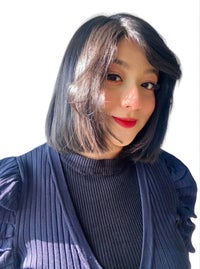
Dr. Blake Freier
Dr. Blake Freier completed his PhD in philosophy of science policy. He was supervised by Dr. Carla Fehr and defended a thesis titled A social-pluralist view of science advising. His research focuses on the trustworthiness of science in the policy process.
“Having government policies that respond to the best available evidence is important, but there are all kinds of curatorial value judgments that come into play in deciding which evidence to base our policies on,” he says.
“Sometimes our judgments are epistemological and other times, social values may shape our judgments. My research looks at the different ways these two dimensions intersect when it comes to science-policy issues,” he explains.
Freier is currently working full-time for the science policy division of Environment and Climate Change Canada. He hopes to publish material from his dissertation to keep a foot in both the policy world and the academy to ensure that his work continues to be useful to those outside academia.
“I would advise other students pursuing their PhDs to make sure they schedule time in their busy schedules to relax, guilt-free. Make sure you look after yourselves, use the resources available to you, and don’t burn yourselves out,” he cautions.
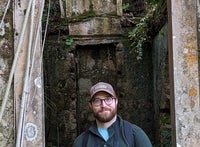
Dr. Tao Guo
Dr. Tao Guo completed his PhD in mechanical and mechatronics engineering. His research focuses on brain-inspired neuromorphic computing that performs data processing in memory and he successfully defended his thesis in July.
During his PhD, Guo published one patent, 11 first-authored papers and 23 co-authored papers. Some of his first-authored papers have been published in prestigious journals, including Advanced Functional Materials, Materials Horizons, Nanoscale Horizons, Nano Energy and others. He credits these achievements in part to his supervisors Drs. Norman Zhou and Yimin A. Wu.
When thinking back on his time at Waterloo Guo says he will miss “harvesting the success of research, after numerous failures in experiments or silly mistakes,”
Guo lives by the mantra: Today is great, tomorrow will be even better.
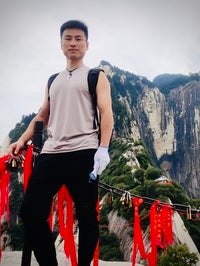
Dr. Dilruba Fatima Sharmin
Dr. Dilruba Fatima Sharmin completed her PhD in social and ecological sustainability. Her research explored the complex interplay between climate change and migration — an area that receives increasing attention globally.
“I had three main objectives: construct a comprehensive interdisciplinary framework for climate migration, assess how migration fits into climate adaptation, and understand how gender plays into migration choices,” she says.
Sharmin chose Waterloo to pursue her PhD, specifically for the opportunity to work with Dr. Roy Brouwer, a highly respected environmental economist whose work on the economics of climate change in Bangladesh she had long admired.
Over the years of her PhD journey, Sharmin’s fondest memory was her defense.
“Those joyful expressions, brimming with genuine admiration and excitement, meant more than just my personal success; it was a moment of shared achievement, reflecting the collective dedication and support that had gone into my research journey,” she recounts.
Sharmin’s advice to fellow PhD seekers is to embrace the journey filled with valuable learning. “I know it’s easier said than done, but stay resilient and curious in the face of challenges. Trust the process; it molds us into adaptable critical thinkers, ready to tackle complex challenges.”
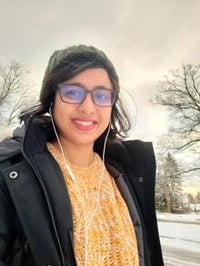
Dr. Alexander Sharp
Dr. Alexander Sharp completed a PhD in statistics under the supervision of Dr. Ryan Browne. His research focused on the modelling and estimation of functional finite mixture models.
“These are generative models for functional data which we usually employ with the hope of identifying meaningful groups from unlabelled data. For example, in one application, we used a functional finite mixture model to determine what type of pitch was thrown in a baseball game based on the observed trajectory of the ball,” he explains.
Sharp has landed himself a postdoc at the University of British Columbia, working with Drs. Ben Bloem-Reddy and Chris Maddison (at the University of Toronto) on representation learning.
He will miss the community he created at Waterloo and the company of his supervisor, peers, admin staff and faculty.
Sharp advises other PhD students to strike a work-life balance and says, “I found that giving my mind a breather and letting that research idea simmer for a while often lead to a breakthrough when work resumed.”
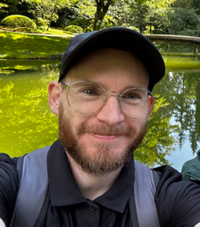
Originally posted on Waterloo News